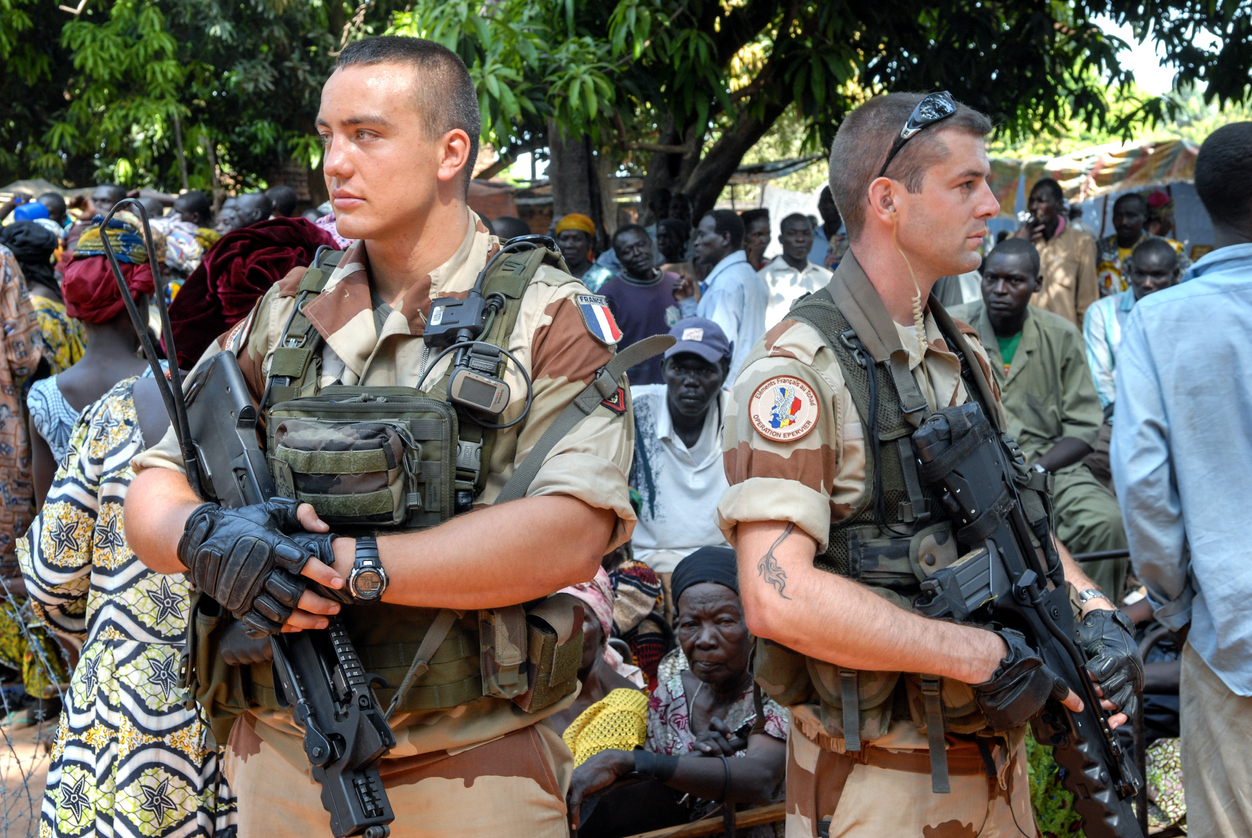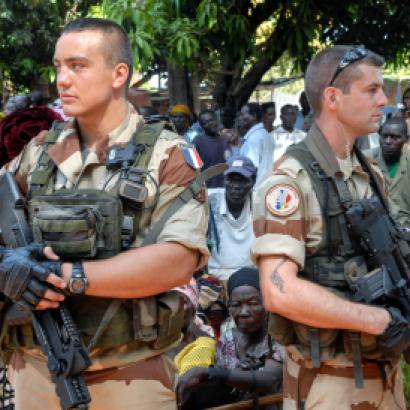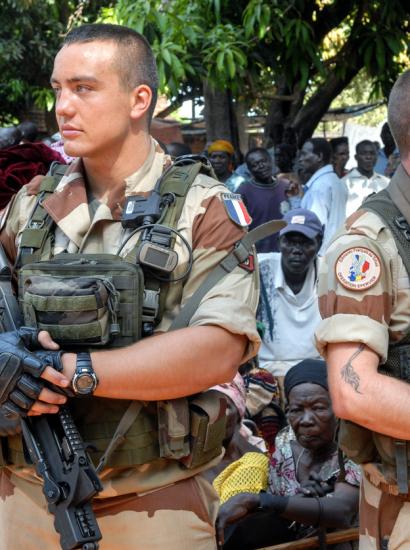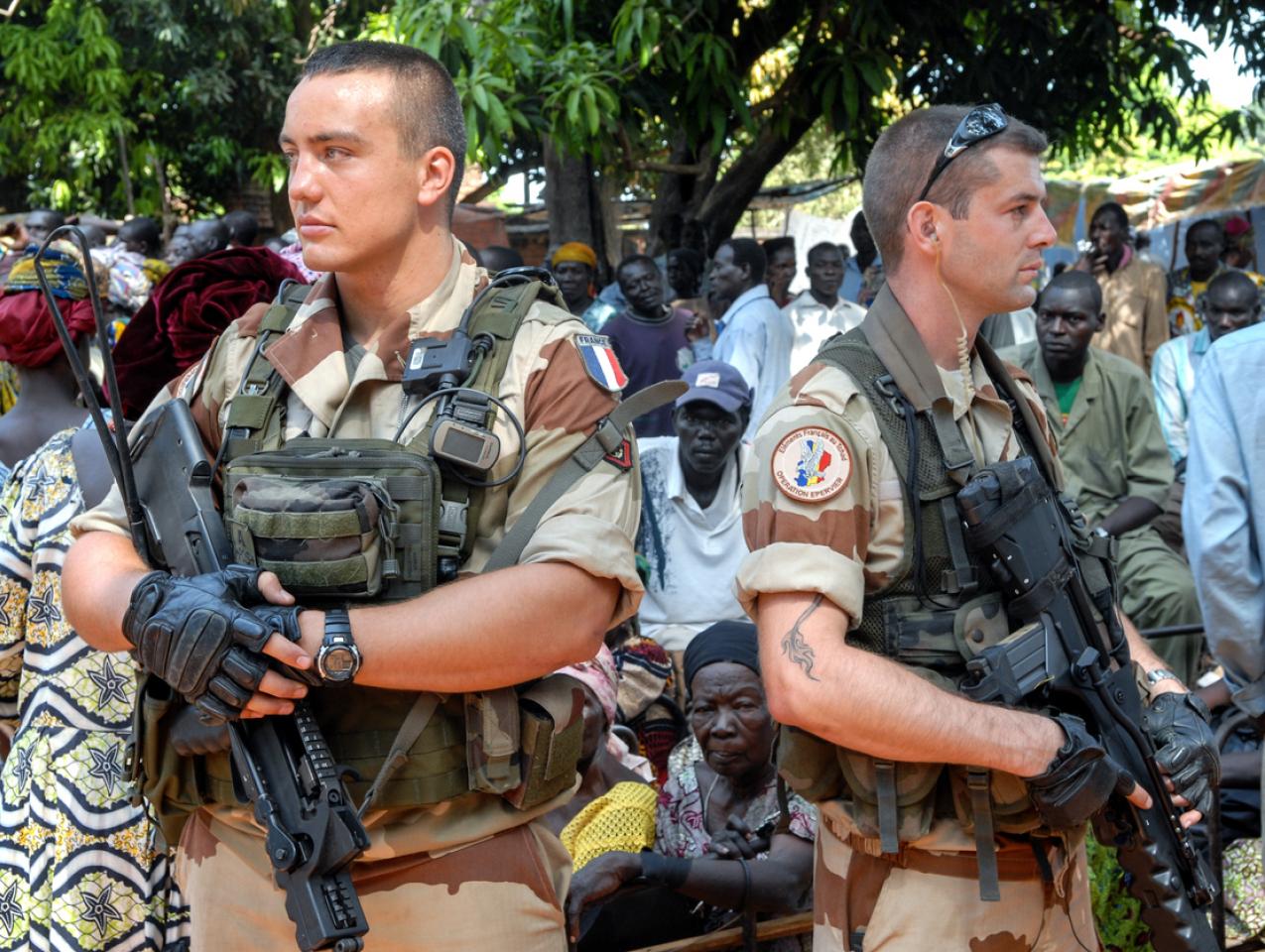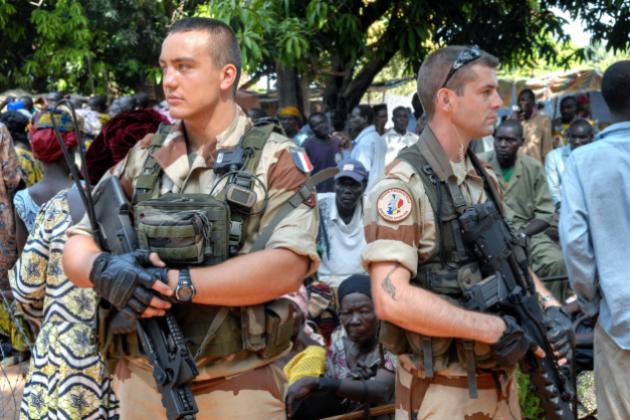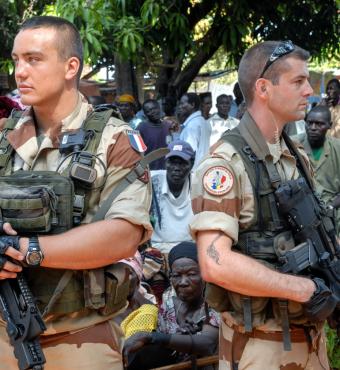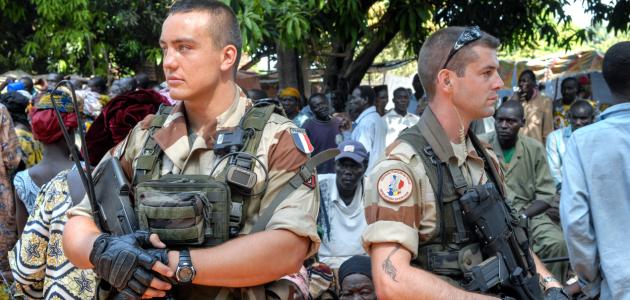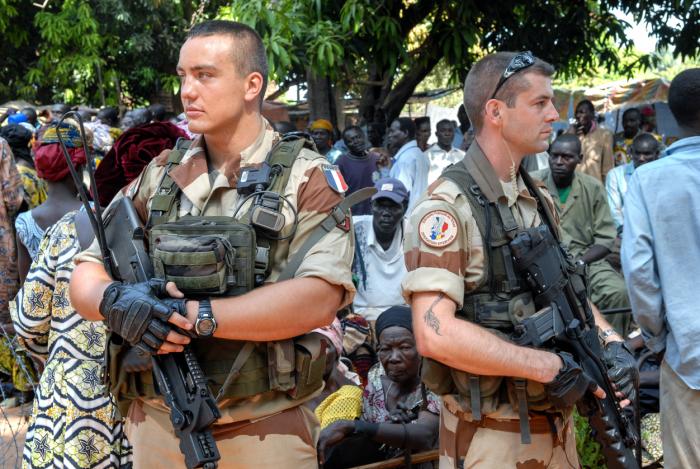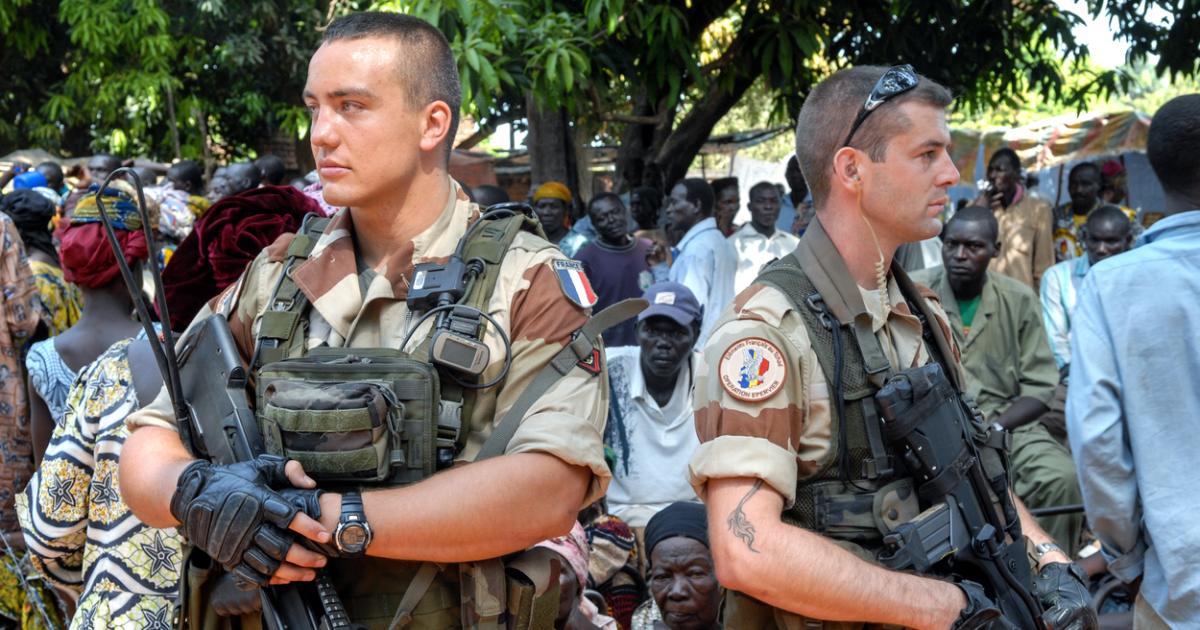- Middle East
Like the Iranian nuclear question before it, the Russian invasion of Ukraine has pushed the jihadist threat in the Sahel into the background. This has not diminished the problem, however, it has only increased and expanded across the African continent. Since 2013, the French military operations Serval and Barkahane at first reduced, and then contained the impact of jihad in the region. During the ten years of French engagement, most of the international jihadists, Algerians and Mauritanians, have been marginalized, even as the propagation of terrorist groups has continued, due to endogenous factors. The retreat of the French armed forces, pushed out of Mail and the Central African Republic (C.A.R.) by the Russian Wagner Group and local governments, has fanned the jihadist flame throughout the region. Today the African continent has become the epicenter of jihadist groups who eye the populations of the Sahel as a possible source for new recruits to rebuild their forces.
The jihadism in 2022-23 is a different version of what it was earlier. Ten years ago, jihad was imported into the Sahel from abroad. Today, it is home-grown, nourished by local causes, especially the victimization of the Fulani community, that supplies the main terrorist contingents. The jihadist agenda in the region has also become more local and national. The Gulf of Guinea has so far been relatively able to resist jihadism. Despite growing numbers of terrorist attacks, the Ivory Coast, Ghana, Benin and Togo have also managed to keep the jihadist threat at bay. Governments there have implemented strategies of “containment” responding not only with military and security means but also with political and societal policies, including a willingness to take into account ethnic and tensions that strain these countries.
Elsewhere matters are different. Bad policies had a cascading effect, and in Mali and Burkina Faso the situation is catastrophic. In Mali, the government strategy to expel the international partners–France, the EU and the UN–and to replace them with alternative allies has led to the expansion of terrorist groups in their territories. These jihadist elements have advanced to the south, and numerous experts consider Mali to have turned into a patchwork where the state is no longer in control as it undergoes a “Somaliazation.”
In Burkina Faso, where the government has similarly ended its European partnerships for counter-terrorism in order to rely on their own local forces, the same degradation has been observed. The Islamic State is growing stronger, attracting foreign fighters from the Middle East. State authorities control no more than 40% of the territory. The coup d’etat of September 2022 has not changed a thing. Most experts think that the country could collapse or become like Syria, with the arrival of massive numbers of foreign fighters in the ranks of the Islamic State. The alternative is to turn itself over to Wagner, as did Mali and the C.A.R.. The French, who have made considerable investments there, fear an internationalization of the conflict throughout the region. Even Senegal, which was long regarded as a symbol of stability like the Ivory Coast, could be drawn into the domino effect. Today key French politicians express this fear openly. What if Bamako and Ouagadougou fall into the hands of Islamists, like Kabul’s fall to the Taliban in August 2021 after the departure of American forces? What if these countries, with their deteriorating security forces, turn into the seat of the Caliphate? In short, in a few years, the region has come to a boil. “Today the strategies of the African actors completely escape us. Will we succeed in avoiding the formation of a ‘hub’ of terrorism in the Sahel?” asks a close advisor to Emmanuel Macron,
Now the Westerners are taking stock of their defeats. This means above all the defeat of their military interventions, which have not succeeded in achieving stability, whether in Iraq or Afghanistan, or in Libya and Mali. One hears in Paris, London and Washington that the political objectives were unrealistic because nation building can only be done by the local populations and elites. The West now recognizes that their approach to the region - military and humanitarian - was too reactive, without anticipating the numerous ethnic and political problems and without having invested in the countries that could be considered as potential crucibles of jihadists, like Burkina Faso, where the collapse of authority took place suddenly.
But it is France above all that owns this mea culpa; it is the former colonial power which entertains, or rather entertained until very recently, privileged relations with the former colonies. Diplomats, soldiers and business leaders agree and draw the same conclusion about the years of military interventionism. The tools that France used were poorly adapted to local dynamics. The assessment is unanimous: an exclusively military strategy was not sufficient. A political follow-up was required. A close advisor to Macron confirms that “over the years, our security engagement eclipsed everything else. It became a handicap.” He elaborates further, “We had to step aside as a military power. In Mali and through the Sahel, we pursued our political and military agenda, and we therefore came into conflict with the sovereignty of these countries.” Today many believe that keeping French soldiers in Mali after the Serval campaign was an error. The French are also recognizing that too often they short-circuited African institutions and interfered in the national political life by issuing multiple bilateral injunctions that were increasingly unwelcome. On the African continent, France has become the most convenient scapegoat and the easiest one to point to.” It is a slate that we have not yet been able to wipe clean,’ commented a highly placed French official.
Since the retreat of their forces in Mali, French political and military leaders have updated their strategy: “Our objective is to transform the perception of France so that the populations do not think that our sole role is to launch military interventions,” according to someone close to Macron. The new strategy advocates actions that are “more discreet and less invasive,” less a matter of military activity and more invested in other areas, such as health and protection of forests. Paris also wants to move beyond its close relations with its former colonies and develop partnerships with the countries of anglophone Africa, Kenya and Tanzania, as well as with Angola. France also seeks the help of European partners, with a single objective: preparing the states of the region to combine their military and political force in order to expel the jihadist danger.
These French ambitions are, however, at risk of colliding with those of the private forces of the Wagner group whose militia acting in concert with the national governments, drove the French military out of Mali and the C.A.R.. Despite the war in Ukraine, there was never a significant reduction of the Wagner investment on the African continent. Some forces were recalled from the C.A.R. but the military presence in Mali continued. A similar military investment is taking place now in Sudan, and Wagner is eyeing other countries, especially those that are considered to be the weak links. The war waged by Vladimir Putin against the West, Europe and France is playing out on the African continent, where the head of Wagner, Yevgeny Prigozhin, has not ruled out moving someday. Africa has become a stage for the demonstration of the Kremlin’s capacity to do harm to Europe.
Instead of solving the problems of the countries of the region and weakening the jihadist danger, Russia–like Turkey elsewhere and China which is pursuing an expansive policy in Africa–is instead instrumentalizing the image of France as a neo-colonial power. It is on the African continent, and not only in Asia, the Middle East and Latin American, that the Kremlin cultivates its allies at the UN, who then vote in its favor and who have been maintaining a benign neutrality toward Moscow since the invasion of Ukraine. In the course of the past few years, the Sahel has become the heart of a ferocious geostrategic battle. According to the French, this is a conflict that cannot be waged without American engagement: because the struggle against the jihadist groups has expanded into a struggle against the Kremlin.
Trans. Russell A. Berman







